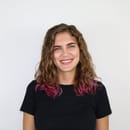Now that you’ve read Brianna’s article about the different ways you can study abroad and decided what program you want to do, you’ve probably got some more questions. Well, if the program you picked was ISEP, I am here to walk you through it.
Photo by Deanna Ritchie on Unsplash
-
The first thing to do is pick where you want to go, and to do this way in advance. I will be studying abroad in the spring of my junior year, and I started thinking about the process in the fall of my sophomore year. Some things to consider are what language you want to speak; the proximity of the school to other points of interest; what subject you will be studying; and how much it’s going to cost to get there. You can browse the available programs on ISEP for inspiration.
a. The ISEP website is kind of terrible. It’s very confusing, so I recommend clicking around on every tab to get as much information as possible.
-
Next, get in touch with the Center for Global Learning. They’ll have a ton of informational sessions throughout the year, featuring topics like the basics of how to apply and panel discussions about the experiences of LGBTQ+ people, people of color, religious people, and others. You should now be very clear on all applicable deadlines!
-
You now have to let Agnes know that you intend to study abroad. This isn’t your actual application, just a statement of intent, but there is a hard deadline. At this point, you need to talk to your advisor(s) to get the courses you plan to take abroad approved.
-
It’s time to actually apply. Keep in mind, you must first apply through ISEP. If you want to go in the spring, the deadline is generally in August. Start this application early, because you will likely need a letter of recommendation from a professor in addition to personal documentation such as a passport and transcripts.
-
Once you have been accepted by ISEP, the real work begins, although the specifics start to vary a lot more based on the school you have selected. Despite the ISEP acceptance, you still have to technically be accepted by the school you have selected. Check your ISEP portal to see what kinds of additional forms you need to fill out.
-
For me, and I strongly suspect I am not alone, by far the most arduous part of the study abroad process was the visa application. I am studying abroad in Belgium, and their visa requirements are EXTENSIVE. Just to give you a taste, I had to get an in-person medical examination, visit the bank to do a wire transfer and get a certified check, go to the post office, print out about 5000 forms (an exaggeration), and visit the embassy in person. Fortunately, Belgium has an embassy in Atlanta, but you may not be able to say the same for every country. Start this process immediately following your official school acceptance.
-
While this isn’t necessarily a step, I would like to bring up the issue of fees. Although you continue to pay Agnes the same as usual while you are abroad, this is not at all the end of the fees. There’s a fee associated with the ISEP application, possibly more than one fee associated with the visa application, a fee for the medical exam, the price of the plane ticket, and this isn’t even getting into the little fees, like the price of parking at the embassy. So apply to those scholarships, or else budget with the unexpected in mind.
As of right now, everything is a-go for me to study in Belgium, but overall, this whole process has taken over a year. I am sure this will all be worth it, but there’s been a lot of tasks and confusion that I wasn’t expecting. One of the most important things to understand is that most of this process is on you, the student. You will have to be the one to stay on top of your deadlines, and to stay in contact with your ISEP study abroad advisor, your Agnes Scott study abroad advisor, and the study abroad advisor at your new school. It may seem daunting, but it’s more than possible, and I can’t wait to see everyone’s amazing travel pictures!


